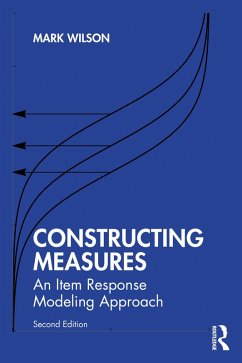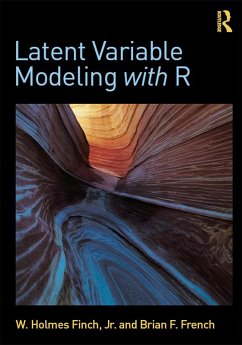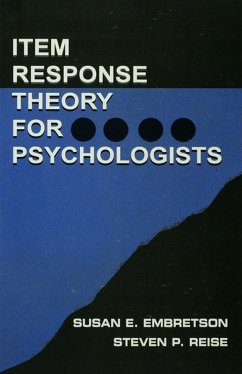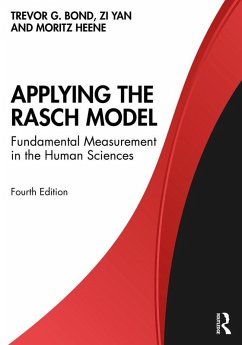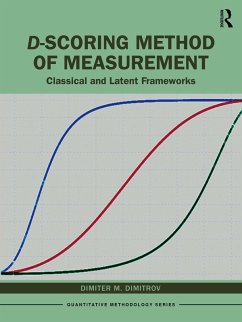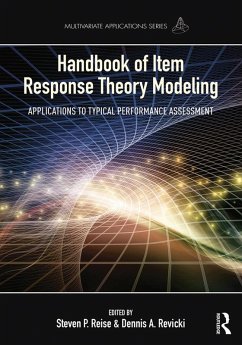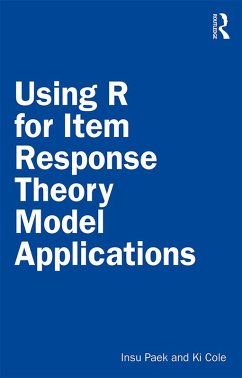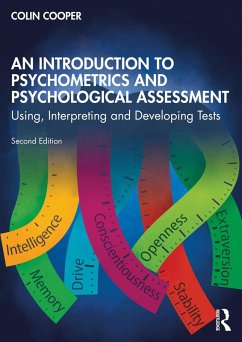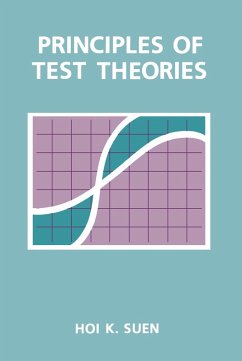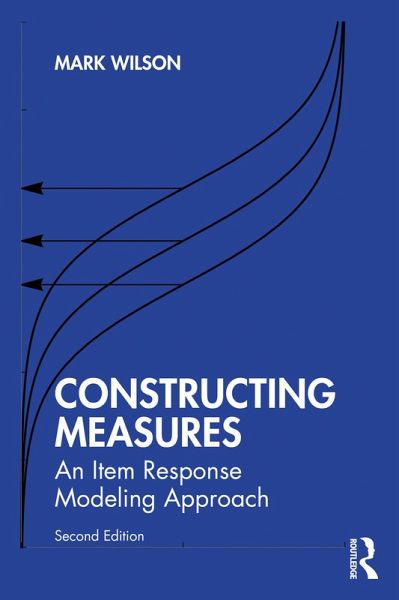
Constructing Measures (eBook, ePUB)
An Item Response Modeling Approach
Versandkostenfrei!
Sofort per Download lieferbar
47,95 €
inkl. MwSt.
Weitere Ausgaben:

PAYBACK Punkte
24 °P sammeln!
Constructing Measures introduces a way to understand the advantages and disadvantages of measurement instruments. It explains the ways to use such instruments, and how to apply these methods to develop new instruments or adapt old ones, based on item response modeling and construct references.Now in its second edition, this book focuses on the steps taken while constructing an instrument, and breaks down the "building blocks" that make up an instrument-the construct map, the design plan for the items, the outcome space, and the statistical measurement model. The material covers a variety of it...
Constructing Measures introduces a way to understand the advantages and disadvantages of measurement instruments. It explains the ways to use such instruments, and how to apply these methods to develop new instruments or adapt old ones, based on item response modeling and construct references.
Now in its second edition, this book focuses on the steps taken while constructing an instrument, and breaks down the "building blocks" that make up an instrument-the construct map, the design plan for the items, the outcome space, and the statistical measurement model. The material covers a variety of item formats, including multiple-choice, open-ended, and performance items, projects, portfolios, Likert and Guttman items, behavioral observations, and interview protocols. Each chapter includes an overview of the key concepts, related resources for further investigation, and exercises and activities. A variety of examples from the behavioral and social sciences and education-including achievement and performance testing, attitude measures, health measures, and general sociological scales-demonstrate the application of the material. New to this edition are additional example contexts including a cognitive/achievement example, an attitude example, and a behavioral example and new concentrations on specific measurement issues and practices such as standard-setting, computer-delivery and reporting, and going beyond the Likert response format.
Constructing Measures is an invaluable text for undergraduate and graduate courses on item, test, or instrument development; measurement; item response theory; or Rasch analysis taught in a variety of departments, including education, statistics, and psychology. The book also appeals to practitioners who develop instruments, including industrial/organizational, educational, and school psychologists; health outcomes researchers; program evaluators; and sociological measurers.
Now in its second edition, this book focuses on the steps taken while constructing an instrument, and breaks down the "building blocks" that make up an instrument-the construct map, the design plan for the items, the outcome space, and the statistical measurement model. The material covers a variety of item formats, including multiple-choice, open-ended, and performance items, projects, portfolios, Likert and Guttman items, behavioral observations, and interview protocols. Each chapter includes an overview of the key concepts, related resources for further investigation, and exercises and activities. A variety of examples from the behavioral and social sciences and education-including achievement and performance testing, attitude measures, health measures, and general sociological scales-demonstrate the application of the material. New to this edition are additional example contexts including a cognitive/achievement example, an attitude example, and a behavioral example and new concentrations on specific measurement issues and practices such as standard-setting, computer-delivery and reporting, and going beyond the Likert response format.
Constructing Measures is an invaluable text for undergraduate and graduate courses on item, test, or instrument development; measurement; item response theory; or Rasch analysis taught in a variety of departments, including education, statistics, and psychology. The book also appeals to practitioners who develop instruments, including industrial/organizational, educational, and school psychologists; health outcomes researchers; program evaluators; and sociological measurers.
Dieser Download kann aus rechtlichen Gründen nur mit Rechnungsadresse in A, B, BG, CY, CZ, D, DK, EW, E, FIN, F, GR, HR, H, IRL, I, LT, L, LR, M, NL, PL, P, R, S, SLO, SK ausgeliefert werden.




